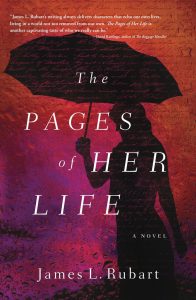by James L. Rubart, @jameslrubart
As I write these words (during the second week of April) talk about COVID-19 has taken over the majority of social media postings and I’m fascinated by it.
(QUICK NOTE: I’m going to mention politics, but this is NOT a political opinion post.)
Why I’m Fascinated
People are seeing things (interpreting things?) in radically different ways.
For example, some of my Facebook friends think the president is doing a simply stellar job of handling the crisis. Other friends post about the disastrous job he has done and is doing.
Here’s What’s Intriguing
It would be easy (or at least tempting) to say the people on the other side from what you believe, are absolutely, 100 percent wrong, that those people don’t know what they’re talking about, that they’ve been blinded and brainwashed.
(I have one friend that says without a hint of sarcasm that all people who lean left are mentally ill and another who says those on the right are completely ruled by emotion.)
But taking either position isn’t intellectually honest, is it?
Yet most people cannot entertain the fact they might be wrong. I’ve seen very few friends on the left who can admit the president has done anything right and very few on the right who can acknowledge he’s done anything wrong.
They’re locked into their position of belief and reject any input that might put their position in doubt. (Confirmation bias and rationalization are powerful deterrents to objective consideration of any situation or intellectual argument.)
And it’s not just individuals. I have a friend who said the other day, “Want to have some fun? Watch the president’s news conference, then turn on both CNN and Fox and watch them at the same time. You’d think they saw two entirely different events.”
Simply put, both sides, whether it’s news outlets, social media posts, conversations on Zoom, feel the same way about the other. That the other side is wrong, wrong, WRONG! But this is impossible, yes? Both sides cannot be correct.
What This Has to Do With Your Stories
I’ve seen too many writers shut down over the years because they got an opinion on their story idea from someone who said, “Sorry, that just doesn’t work. There’s no way anyone is ever going to want that.”
Maybe they’re right. Maybe your story doesn’t work. But maybe they’re wrong. Maybe it’s just their opinion, shaped by their own story, shaped by their confirmation bias; shaped by their tastes and past experiences.
Maybe your story is a genre busting, wild ride that will grab readers around the throat and not let go.
Truth is, the stories that break the mold, that push the sound barrier, then the light barrier, of fiction are the ones that end up being the game changers.
So yes, there are people who will tell you without a shred of doubt that you’re wrong, that your ideas won’t work, that you should give up pushing boundaries and write within the box.
But there are others that will shout just as loudly, “Go for it! What do you have to lose? If it’s the story of your heart, write the story. Worst case? It doesn’t sell. But at least you saw your vision to the end. And that, you can live with.”

How Do You Stand Up for Yourself When It Means Losing Everything?
Allison Moore is making it. Barely. The Seattle architecture firm she started with her best friend is struggling, but at least they’re free from the games played by the corporate world. She’s gotten over her divorce. And while her dad’s recent passing is tough, their relationship had never been easy.
Then the bomb drops. Her dad was living a secret life and left her mom in massive debt.
As Allison scrambles to help her mom find a way out, she’s given a journal, anonymously, during a visit to her favorite coffee shop. The pressure to rescue her mom mounts, and Allison pours her fears and heartache into the journal.
But then the unexplainable happens. The words in the journal, her words, begin to disappear. And new ones fill the empty spaces—words that force her to look at everything she knows about herself in a new light.
Ignoring those words could cost her everything . . . but so could embracing them.

James L. Rubart is 28 years old, but lives trapped inside an older man’s body. He thinks he’s still young enough to water ski like a madman and dirt bike with his two grown sons. He’s the best-selling, Christy BOOK of the YEAR, CAROL, INSPY, and RT Book Reviews award winning author of ten novels and loves to send readers on journeys they’ll remember months after they finish one of his stories. He’s also a branding expert, audiobook narrator, co-host of the Novel Marketing podcast, and co-founder with his son, Taylor, of the Rubart Writing Academy. He lives with his amazing wife on a small lake in Washington state.

